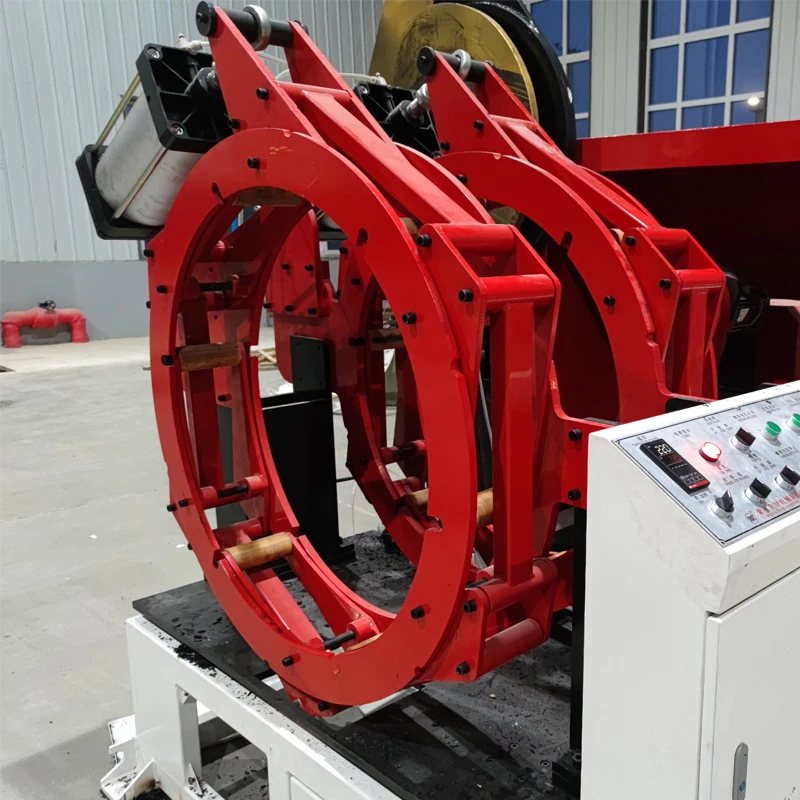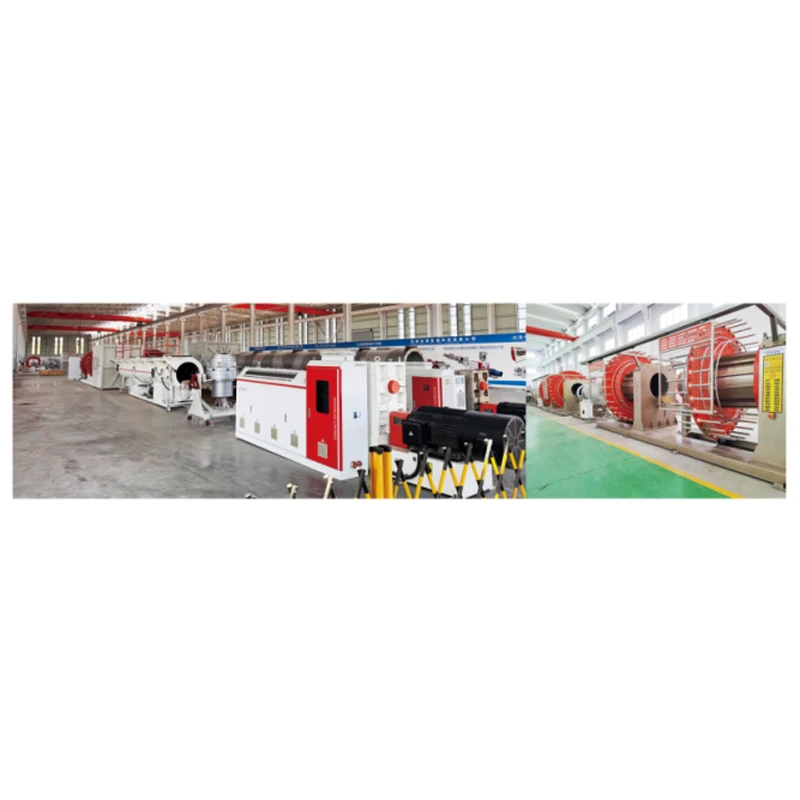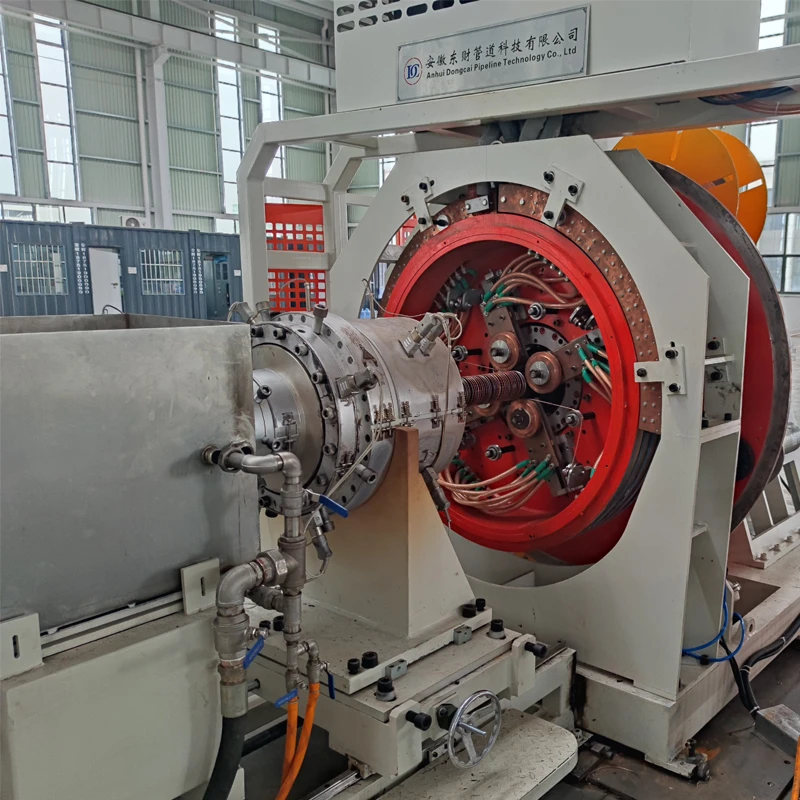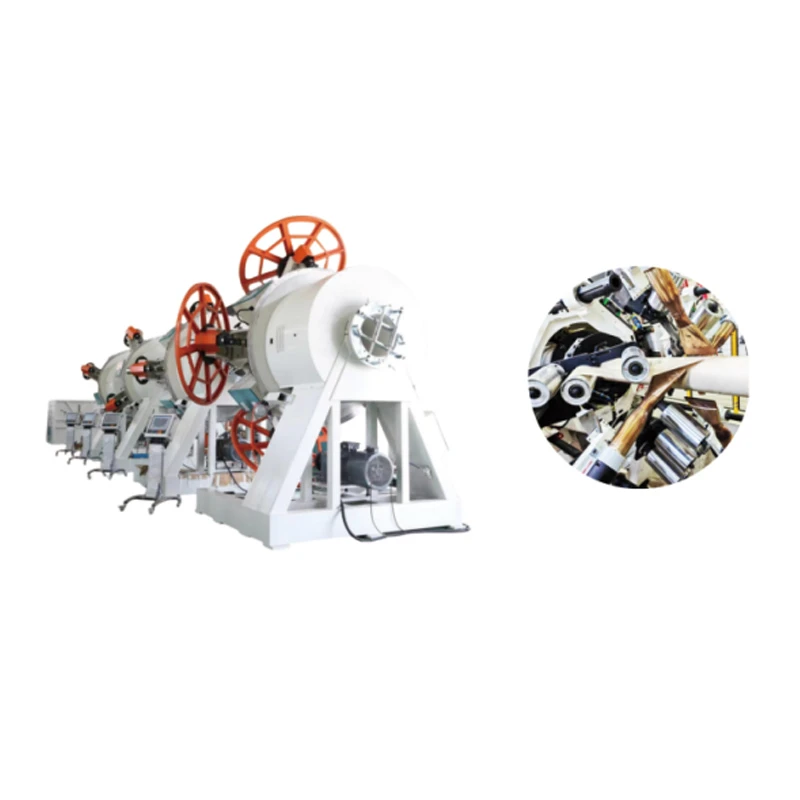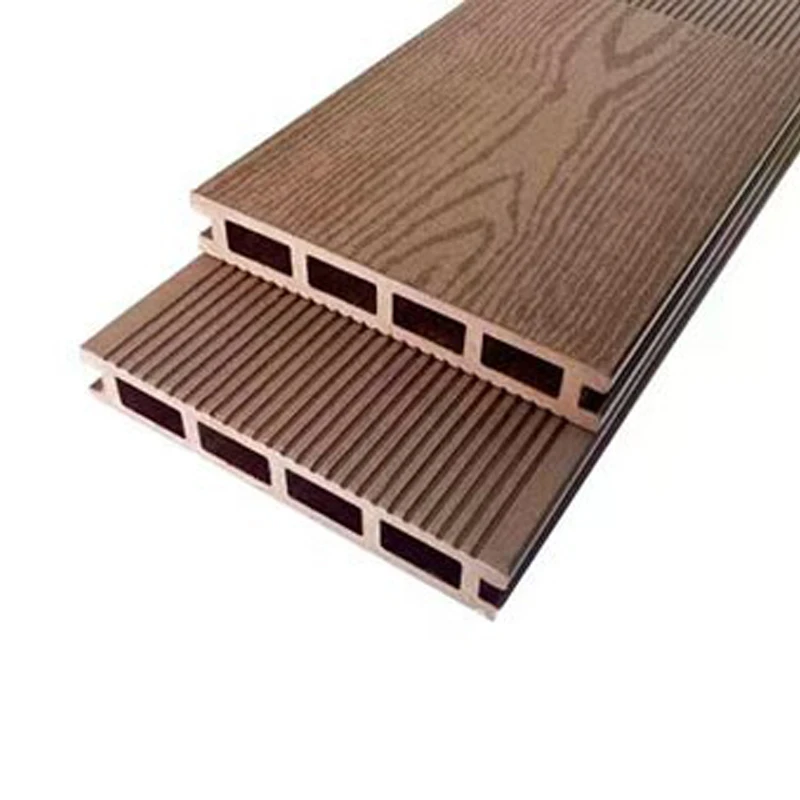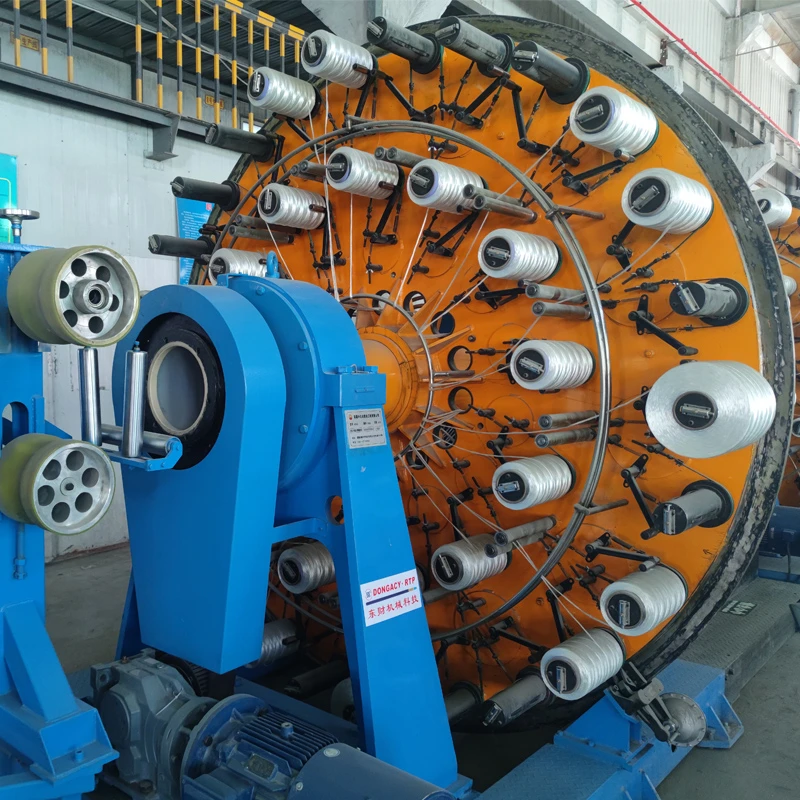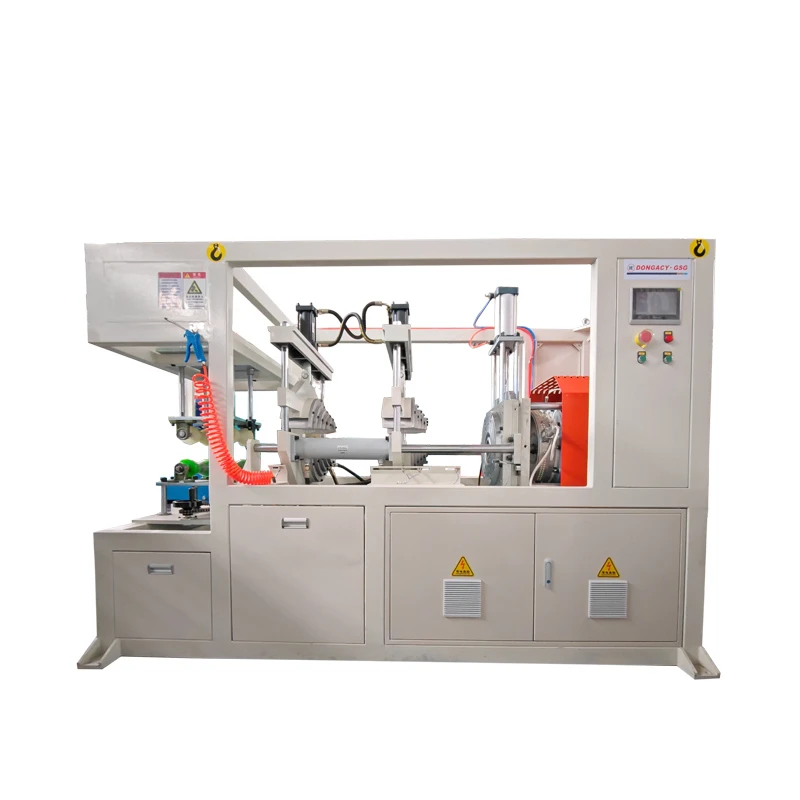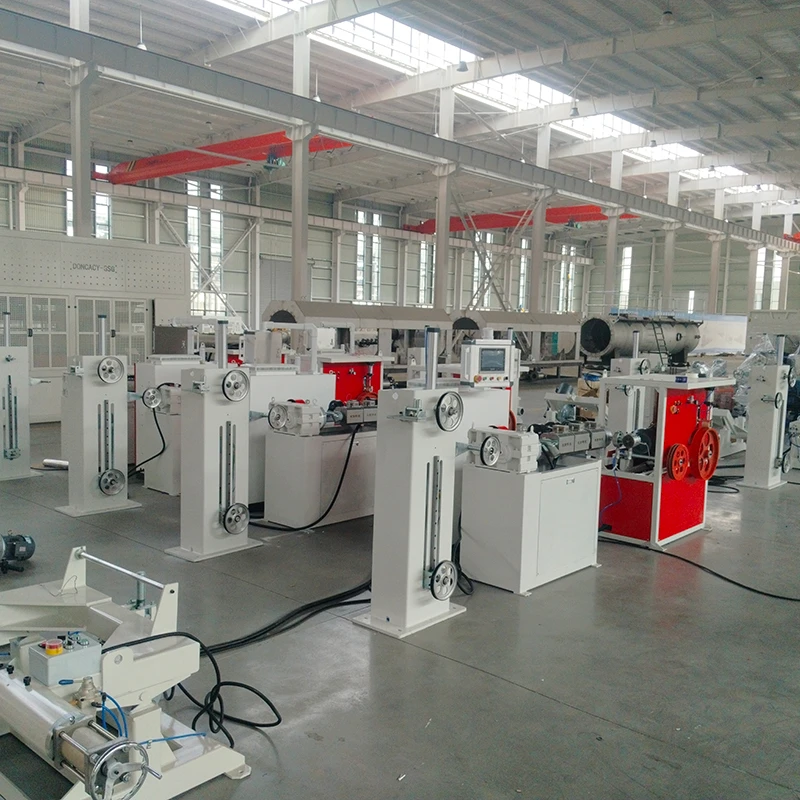
The Evolution of Pipe Infrastructure: Insights into Composite Pipe Production
In an era demanding robust, corrosion-resistant, and high-performance piping solutions, composite pipes have emerged as a critical innovation across various industrial sectors. Traditional metallic or plastic pipes often fall short in specific applications, necessitating materials that combine the best properties of both. This article delves into the intricate world of composite pipe production line technology, particularly focusing on the High Speed Steel Wire Mesh Skeleton Reinforced Polyethylene Composite Pipe Production Line. We will explore the sophisticated processes, technical advantages, and diverse applications that make these lines indispensable for modern infrastructure development, highlighting their contribution to sustainability and operational efficiency.
The rapid advancements in material science and engineering have paved the way for composite piping systems that offer unparalleled longevity, chemical resistance, and pressure bearing capabilities. Industries such as petrochemical, mining, oil & gas, and municipal water supply are increasingly adopting these advanced solutions to mitigate risks associated with pipeline failures, reduce maintenance costs, and enhance overall system reliability. Understanding the core technologies behind a state-of-the-art composite pipe production line is crucial for stakeholders seeking to invest in durable and economically viable piping infrastructure.
Comprehensive Process Flow of a Composite Pipe Production Line
Manufacturing High Speed Steel Wire Mesh Skeleton Reinforced Polyethylene Composite Pipes involves a meticulously engineered process to ensure optimal performance and structural integrity. The core of this process relies on advanced extrusion and compounding techniques. It begins with the precise uncoiling and forming of high-strength steel wires into a lattice or mesh structure, often through continuous welding or intertwining. This skeleton acts as the primary load-bearing component, significantly enhancing the pipe's tensile strength and pressure resistance. Simultaneously, high-density polyethylene (HDPE) pellets, specifically formulated for high performance, are fed into a series of extruders.
The manufacturing journey continues with the extrusion of the inner HDPE layer, which forms a seamless, smooth conduit for fluid flow, offering excellent chemical resistance and low friction. Immediately following this, the pre-formed steel wire mesh skeleton is precisely embedded into the molten HDPE. A crucial step involves the application of a specialized adhesive layer or a co-extruded bonding layer to ensure strong molecular fusion between the HDPE and the steel mesh, preventing delamination and ensuring a homogeneous composite structure. Finally, an outer layer of HDPE is extruded, encapsulating the entire structure and providing external protection against abrasion, UV radiation, and environmental stressors.
Post-extrusion, the hot composite pipe undergoes controlled cooling in water baths to solidify the material and maintain dimensional stability. A high-precision hauling-off unit then pulls the pipe through the line at a consistent speed, followed by automated cutting to desired lengths or coiling for smaller diameters. Quality control is paramount at every stage, involving non-destructive testing (NDT) methods like ultrasonic inspection to detect any voids or inconsistencies, alongside rigorous material testing for tensile strength, burst pressure, and stress cracking resistance. Adherence to international standards such as ISO 4427 and ANSI B31.3 ensures the final product's reliability. This advanced manufacturing approach results in pipes with superior anti-corrosion properties, extended service life (often exceeding 50 years), and significant energy savings due to reduced pumping requirements in industries like petrochemical, metallurgy, and municipal water supply, where they excel in challenging applications due to their exceptional pressure handling and reduced maintenance needs.
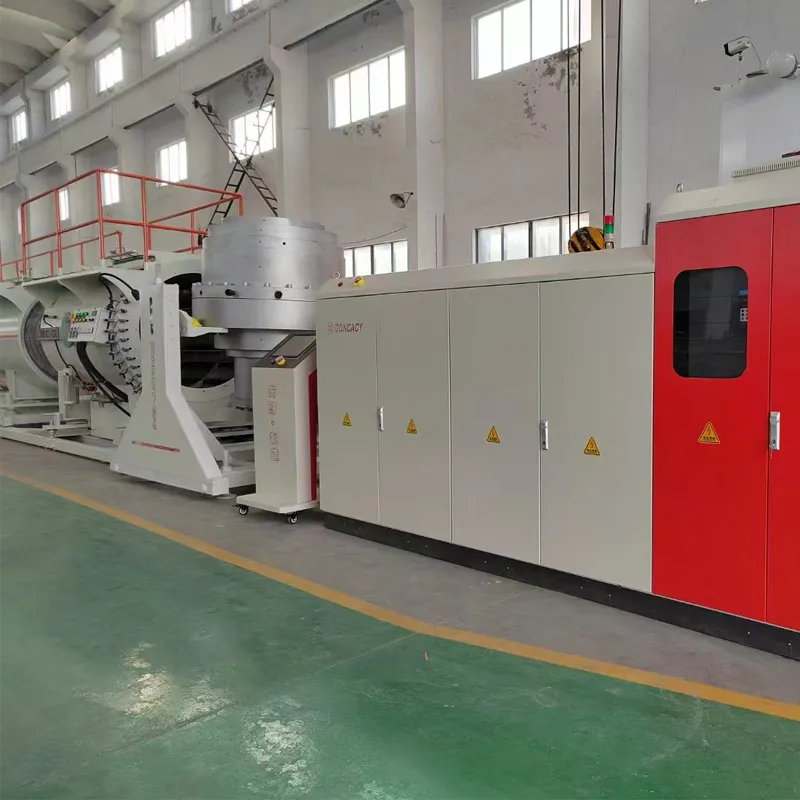
Key Technical Parameters & Performance Data
The performance and efficiency of a composite pipe production line are defined by a range of critical technical parameters. These parameters dictate the type and quality of pipes that can be manufactured, influencing everything from production speed to material compatibility. Understanding these specifications is vital for businesses looking to invest in a high-performance system capable of meeting diverse industrial demands. The integration of advanced control systems, such as PLC (Programmable Logic Controller) and HMI (Human Machine Interface), ensures precise temperature control, extrusion speed synchronization, and overall operational stability, leading to consistent product quality and reduced waste.
Below is a table outlining typical parameters for a state-of-the-art High Speed Steel Wire Mesh Skeleton Reinforced Polyethylene Composite Pipe Production Line. These figures represent the capabilities of modern machinery designed for efficiency and versatility:
| Parameter | Specification/Range | Description/Notes |
|---|---|---|
| Pipe Diameter Range | DN50 - DN800 (or larger customizable) | Suitable for various industrial and municipal applications. |
| Production Speed | 0.5 - 5 m/min (depending on pipe diameter/wall thickness) | High efficiency, capable of continuous operation. |
| Extruder Type | High-efficiency Single Screw Extruders | Optimized for HDPE processing, ensuring uniform melt. |
| Total Installed Power | Approx. 200 - 600 kW | Energy-efficient design for reduced operational costs. |
| Pressure Rating (PN) | PN1.0 - PN4.0 (10-40 bar) | High pressure resistance due to steel mesh reinforcement. |
| Materials Processed | HDPE (PE100, PE80), Steel Wire (High-carbon steel) | Robust material compatibility for enhanced performance. |
| Lifespan of Pipes | 50+ years under specified conditions | Reduced need for replacement, lower lifecycle costs. |
These specifications underscore the advanced capabilities of modern production lines, ensuring that the manufactured composite pipes meet stringent quality requirements for demanding environments. The precise control over extrusion, cooling, and mesh integration contributes to the consistent production of pipes with superior burst strength, fatigue resistance, and overall durability. Such comprehensive parameter control is what sets apart a leading composite pipe production line, making it a reliable investment for long-term infrastructure projects.
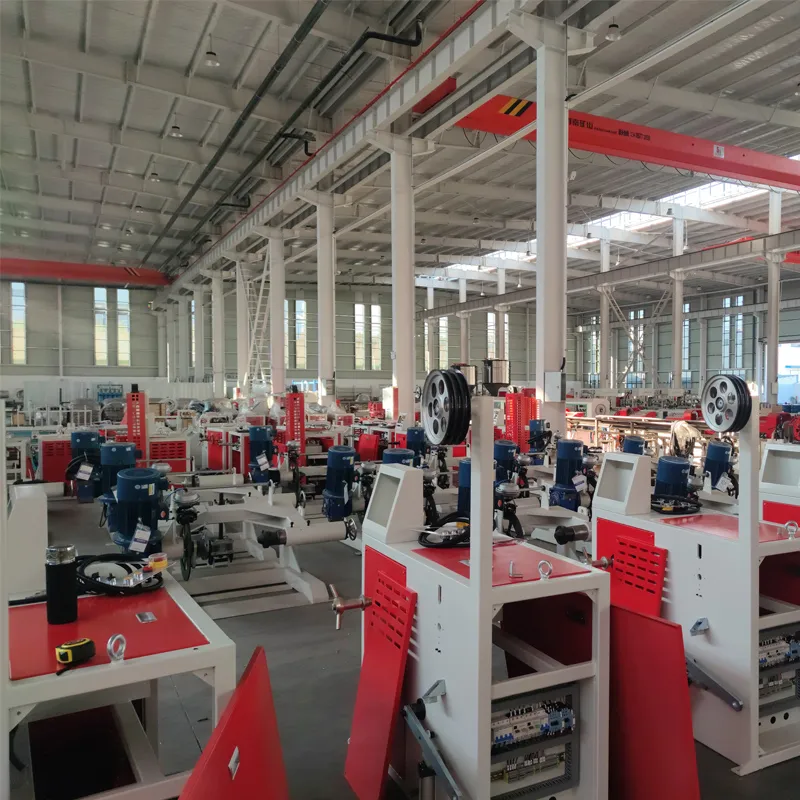
Applications and Industry Adoption
The versatility and superior performance characteristics of steel wire mesh reinforced polyethylene composite pipes make them ideal for a broad spectrum of industrial and civil engineering applications. Their robust design, combining the flexibility and chemical resistance of HDPE with the strength of steel, provides a reliable solution where traditional piping materials are prone to failure or require frequent maintenance. From high-pressure fluid transportation to corrosive waste management, these pipes deliver consistent performance and long-term cost savings.
Typical Application Scenarios:
- Petrochemical and Chemical Industry: Used for transporting corrosive chemicals, acids, and alkalis, where their excellent chemical inertness prevents degradation and ensures safety.
- Oil and Gas Transmission: High pressure bearing capacity and corrosion resistance make them suitable for crude oil, natural gas, and refined product pipelines, especially in challenging environments.
- Mining Sector: Ideal for slurry transportation, dewatering, and ventilation systems, capable of withstanding abrasive materials and harsh underground conditions.
- Municipal Water Supply and Drainage: Long lifespan, leak-proof joints (via electrofusion welding), and resistance to biological fouling make them a preferred choice for potable water networks and sewage systems.
- Power Plants: Utilized in cooling water systems and ash slurry lines due to their resistance to high temperatures and corrosive media.
- Agricultural Irrigation: Offers durability and reliability for large-scale irrigation projects, minimizing water loss and maintenance.
A notable case study involves a major mining operation in South America that replaced their conventional steel slurry pipelines with steel wire mesh reinforced HDPE composite pipes produced on a cutting-edge composite pipe production line. The previous steel pipes experienced frequent corrosion and abrasion-induced failures, leading to significant downtime and environmental concerns. The transition to composite pipes resulted in a dramatic reduction in maintenance costs (over 70% decrease in the first three years), extended pipeline lifespan by more than twofold, and eliminated leakages, enhancing operational efficiency and environmental compliance. This demonstrates the tangible benefits and rapid return on investment provided by these advanced piping solutions across various demanding applications.
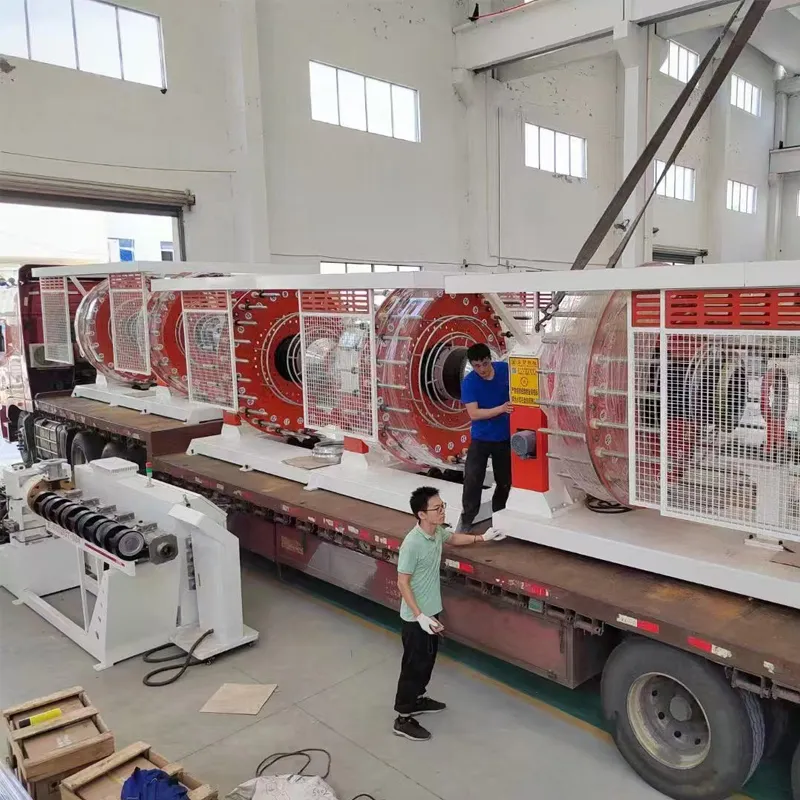
Technological Advantages and Innovations
The High Speed Steel Wire Mesh Skeleton Reinforced Polyethylene Composite Pipe Production Line embodies several key technological advantages that elevate the manufactured pipes above traditional alternatives. The fundamental innovation lies in the synergistic combination of materials, leveraging the strengths of both steel and high-density polyethylene. This unique composite structure provides exceptional mechanical properties, including high tensile strength, superior impact resistance, and impressive pressure ratings, while retaining the corrosion and chemical resistance characteristic of HDPE. The production process itself integrates advanced extrusion and winding technologies, ensuring a homogeneous bond between layers and precise embedding of the steel mesh, which is critical for long-term performance.
Beyond material strength, these pipes offer significant operational benefits. Their smooth inner surface reduces friction, minimizing energy loss during fluid transportation and leading to substantial energy savings for pumping systems. The composite structure also exhibits superior resistance to stress cracking, a common failure mode in monolithic plastic pipes, and is immune to corrosion and scaling, unlike metallic pipes. This translates into drastically reduced maintenance requirements and a longer operational lifespan, often exceeding 50 years. Furthermore, the pipes are lighter than steel pipes of comparable strength, simplifying transportation and installation, which reduces overall project timelines and costs. Innovations in joining technologies, such as electrofusion welding, provide strong, leak-proof connections, further enhancing system integrity. These multifaceted advantages solidify the position of a modern composite pipe production line as a producer of next-generation infrastructure solutions.
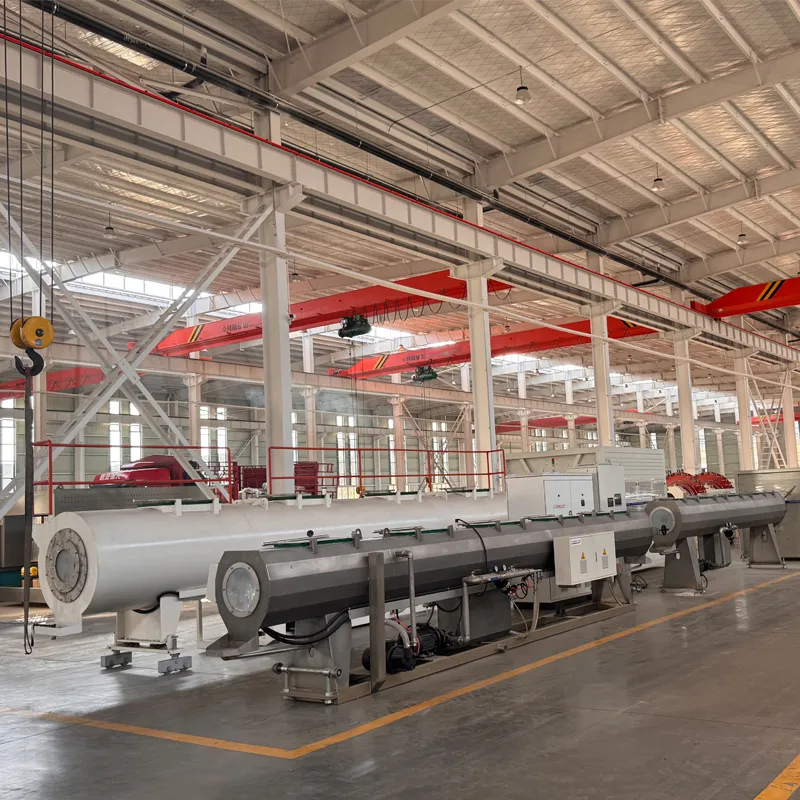
Manufacturer Comparison and Factors Influencing HDPE Machine Price
When considering an investment in a composite pipe production line, evaluating potential manufacturers is a critical step. The market offers a range of suppliers, each with varying levels of expertise, technological sophistication, and after-sales support. Key differentiation factors include the automation level of the line, the precision of extrusion heads and cooling systems, the integration of real-time quality control mechanisms, and the overall energy efficiency of the machinery. Reputable manufacturers often provide comprehensive pre-sales consultation, custom engineering solutions, and robust technical support post-purchase, which are invaluable for a complex investment of this nature.
The hdpe machine price, particularly for advanced composite pipe production lines, is influenced by several intertwined factors. Firstly, the production capacity and the maximum pipe diameter the line can produce significantly impact the cost; larger capacities and broader diameter ranges typically command higher prices due to increased material, engineering complexity, and robust component requirements. Secondly, the level of automation and integration of smart technologies, such as IoT-enabled monitoring and predictive maintenance features, adds to the cost but promises higher efficiency and reduced labor needs. Thirdly, the brand reputation, the quality of components (e.g., Siemens or ABB control systems, German-made gears), and the warranty and after-sales service package offered by the manufacturer play a crucial role in the overall investment. While a lower initial `hdpe machine price` might seem attractive, it is crucial to consider the total cost of ownership, including operational efficiency, maintenance, and the longevity of the equipment, as these factors ultimately determine the long-term profitability of the investment. A thorough cost-benefit analysis considering these aspects is highly recommended before making a purchasing decision.
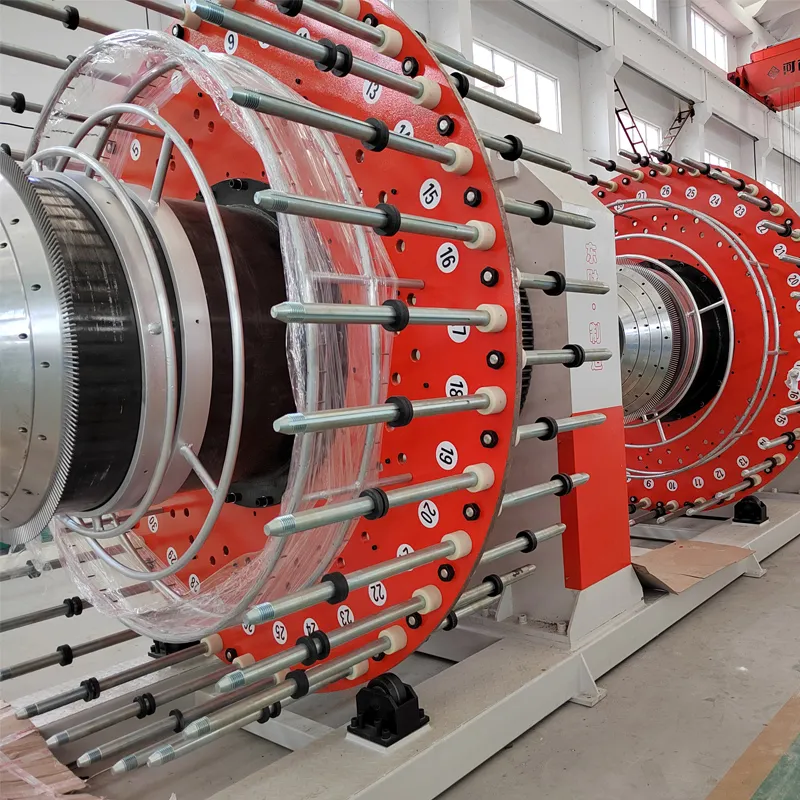
Customized Solutions and Client-Centric Approach
Recognizing that no two projects are identical, leading manufacturers of composite pipe production line equipment prioritize a client-centric approach, offering highly customized solutions. This begins with an in-depth consultation to understand specific project requirements, including desired pipe diameters, production volumes, material specifications, and available facility space. Based on this, engineers design a bespoke production line configuration, optimizing layout, machinery components, and automation levels to maximize efficiency and tailor the output to the client's precise needs. This bespoke approach ensures that the investment aligns perfectly with operational goals and budget constraints, preventing over-specification or under-delivery.
Beyond initial design and manufacturing, comprehensive support typically includes professional installation guidance, on-site commissioning, and intensive training for operational and maintenance staff. This ensures a smooth transition to full-scale production and empowers the client's team with the knowledge to efficiently run and maintain the complex machinery. Furthermore, ongoing technical support, spare parts availability, and opportunities for future upgrades or modifications are crucial aspects of a holistic service package, building long-term partnerships and ensuring the sustained high performance of the composite pipe production line throughout its lifecycle. This commitment to tailored solutions and continuous support is a hallmark of a reliable equipment provider in the competitive B2B landscape.
Ensuring Quality and Trustworthiness ( Focus)
In the B2B sector, trust and authority are paramount. A reputable provider of a composite pipe production line demonstrates these through rigorous adherence to international quality standards, transparent operational practices, and verifiable track records. Companies should possess certifications such as ISO 9001 for quality management, ISO 14001 for environmental management, and CE certification, indicating compliance with European health, safety, and environmental protection standards. These certifications are not merely badges but reflect an embedded commitment to consistent quality across all manufacturing processes, from component sourcing to final assembly and testing. Furthermore, a long operational history and a substantial number of successful installations worldwide serve as strong indicators of reliability and expertise within the industry.
Our commitment to excellence is further evidenced by comprehensive quality assurance protocols, including multi-stage inspection during manufacturing, factory acceptance testing (FAT) before shipment, and full compliance with industry-specific standards. We provide transparent documentation of all material specifications, test reports, and operational manuals. The typical delivery cycle for a complete composite pipe production line ranges from 90 to 150 working days, depending on customization and component availability, with clear communication at every stage. We offer a standard warranty of 12-24 months for major components, backed by responsive customer support and readily available spare parts to minimize potential downtime. Our dedicated technical team provides remote assistance and on-site support, ensuring optimal performance and longevity of the investment. Client testimonials consistently highlight our reliability, technical prowess, and excellent post-sales service, reinforcing our position as a trusted partner in pipe manufacturing.
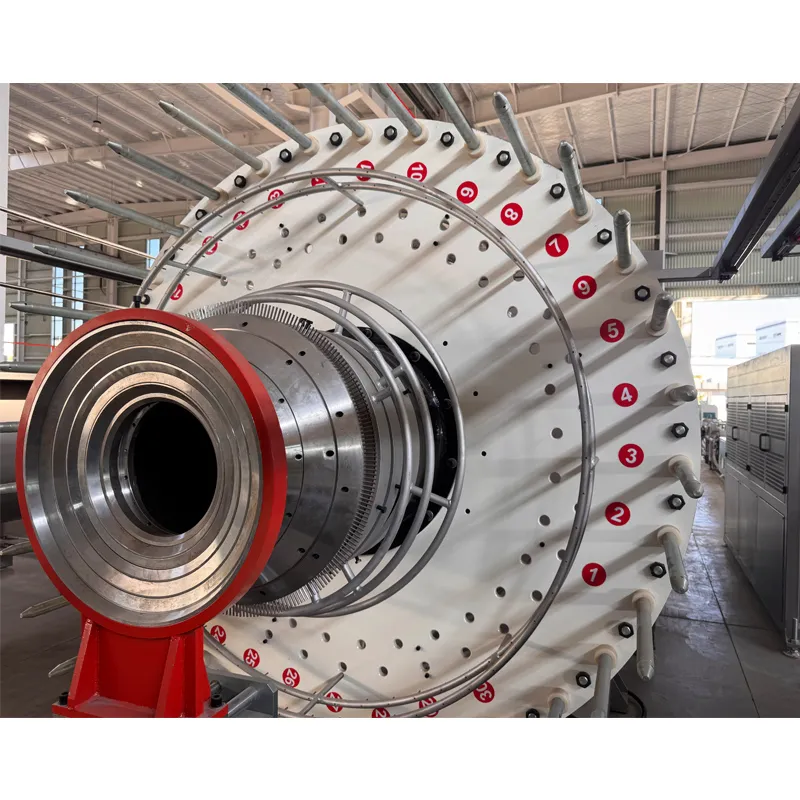
Frequently Asked Questions (FAQ)
- Q1: What are the primary advantages of steel wire mesh reinforced PE composite pipes over traditional pipes?
A1: These pipes offer superior pressure resistance, enhanced long-term creep resistance, excellent corrosion and chemical resistance, and significantly extended service life (up to 50 years). They are also lighter than steel, easier to install, and provide better resistance to stress cracking compared to monolithic PE pipes. - Q2: What is the typical lead time for delivering a complete composite pipe production line?
A2: The typical lead time varies based on the line's complexity and customization, generally ranging from 90 to 150 working days from order confirmation to shipment. We provide a detailed project timeline upon agreement. - Q3: How durable are the pipes produced by this line in harsh industrial environments?
A3: The pipes are designed for extreme durability. The inner and outer HDPE layers provide excellent resistance to corrosive chemicals, abrasion, and UV radiation, while the embedded steel mesh offers robust structural integrity against high pressures and external loads, making them ideal for petrochemical, mining, and aggressive fluid transport applications. - Q4: What kind of after-sales support and warranty are provided for the production line?
A4: We offer a comprehensive after-sales package including installation supervision, commissioning, operator training, a 12-24 month warranty on major components, and lifelong technical support. Our global service network ensures quick response times for any operational or maintenance inquiries, minimizing downtime for your composite pipe production line. - Q5: Can the production line be customized for specific pipe diameters or material blends?
A5: Absolutely. Our production lines are modular and highly customizable. We can adjust specifications for pipe diameter ranges, wall thicknesses, types of HDPE (e.g., PE100, PE80), and steel wire specifications to meet unique project requirements and ensure optimal output from your composite pipe production line.
Conclusion
The High Speed Steel Wire Mesh Skeleton Reinforced Polyethylene Composite Pipe Production Line represents a significant leap forward in pipe manufacturing technology. Its ability to produce pipes that combine the strength of steel with the durability and chemical resistance of HDPE addresses many limitations of traditional piping systems. For B2B decision-makers and technical personnel, investing in such an advanced composite pipe production line offers a strategic advantage, ensuring the delivery of high-quality, long-lasting, and cost-effective piping solutions for a wide array of demanding applications. By embracing these technological advancements, industries can achieve enhanced operational efficiency, reduced environmental impact, and superior infrastructure longevity, paving the way for a more resilient and sustainable future.
References
- ISO 4427-1:2007 - Plastics piping systems for water supply, and for drainage and sewerage under pressure — Polyethylene (PE) — Part 1: General.
- ASTM F2619 - Standard Test Method for Pultruded Fiberglass Composite Pipe.
- Polyethylene Handbook: Materials, Properties, and Applications (Polymer Science and Engineering Series).
- The Principles of Plastic Extrusion (Plastics Design Library).
- NACE International Standard SP0169 - Control of External Corrosion on Underground or Submerged Metallic Piping Systems.
-
Innovative Solutions in PVC Pipe Production LineNewsJul.18,2025
-
Innovative Solutions in Pipe Extrusion Production LineNewsJul.18,2025
-
Advanced Plastic Profile Extrusion SolutionsNewsJul.18,2025
-
PVC Profiles: The Future of Durable and Cost-Effective Construction SolutionsNewsJun.06,2025
-
PVC Pipe Extrusion LineNewsJun.06,2025
-
High-Quality Polyethylene Pipe Production LineNewsJun.06,2025
-
High-Performance Tube Production LineNewsJun.06,2025

